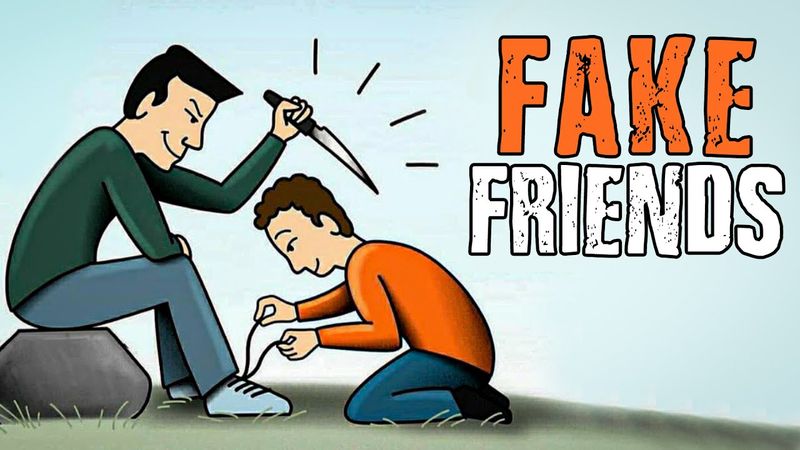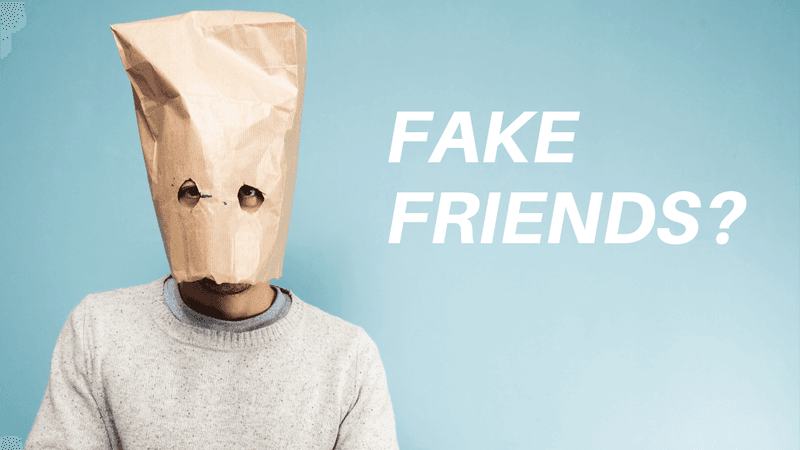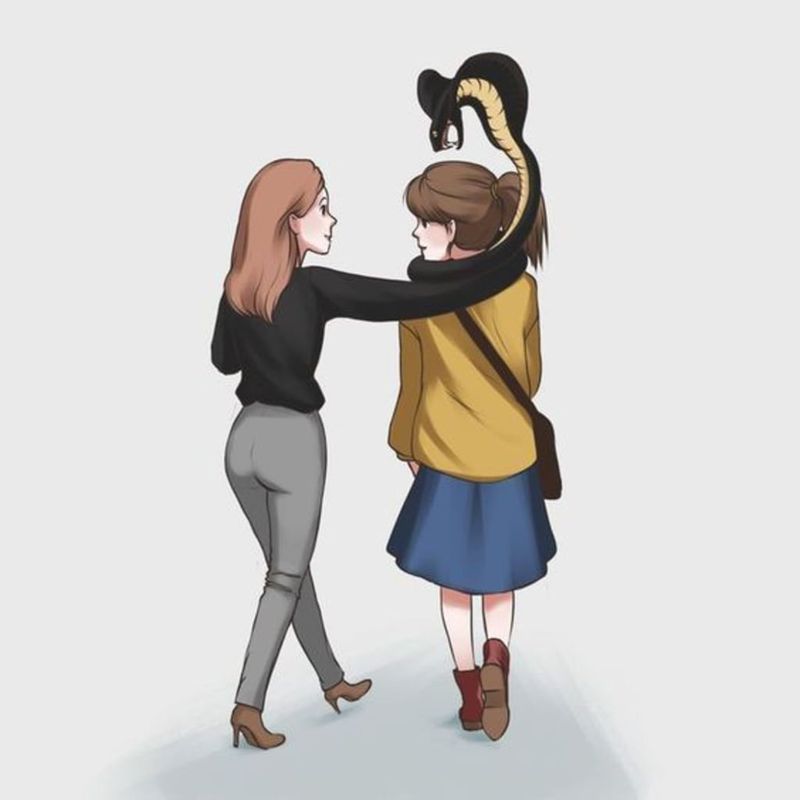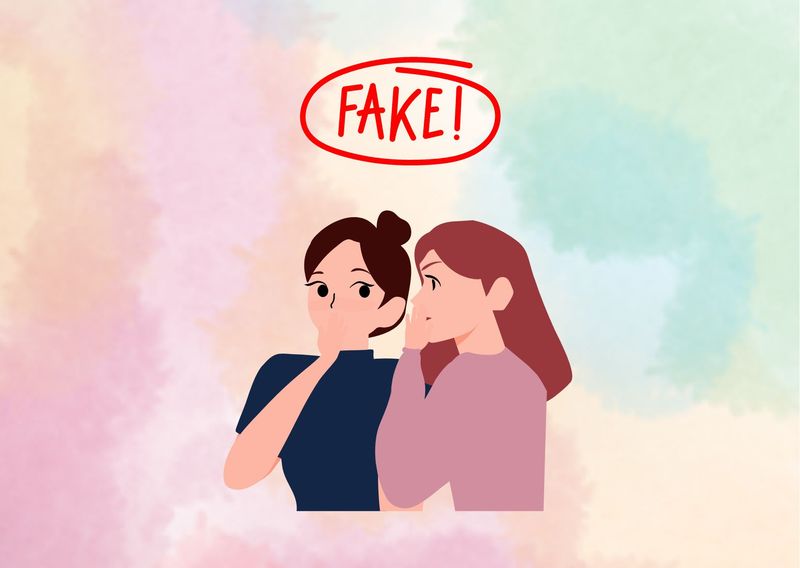Friendship is a crucial part of our lives, offering support, joy, and companionship. However, not all friendships are genuine, and it can be challenging to identify when someone isn’t truly your friend. Recognizing these hidden signs can save you from emotional turmoil and help you invest in healthier relationships.
In this post, we’ll explore nine subtle indicators that someone may not be the friend they claim to be, providing you with the insight needed to evaluate your connections. By understanding these signs, you can foster more authentic and meaningful friendships.
1. Lack of Support

Support is a cornerstone of any genuine friendship. If you find that your supposed friend is rarely there for you during tough times, it might be a red flag. An authentic friend offers help and comfort without expecting anything in return.
Conversely, a person who isn’t truly your friend may only appear when it’s convenient for them. They may offer excuses instead of assistance, leaving you feeling unsupported.
Pay attention to whether their actions match their words. Consistently failing to support you in times of need is a clear indicator that their friendship might not be genuine.
2. Constant Criticism

True friends offer constructive feedback, aiming to uplift you. However, if someone continuously criticizes you without empathy, it might be a sign they’re not a real friend.
This constant criticism can erode your self-esteem and create tension in the relationship. Instead of feeling supported, you may feel judged and inadequate.
Ask yourself if their critiques come from a place of care or condescension. Genuine friends provide supportive feedback, not relentless criticism. If you’re feeling more criticized than appreciated, it’s time to reevaluate the friendship.
3. Inconsistent Contact

Friends who genuinely care will make an effort to stay in touch. Inconsistent contact from someone who claims to be your friend might indicate a lack of genuine interest.
If you’re always the one initiating conversations and meetups, it’s worthwhile to consider if the friendship is one-sided. Consistency in communication is a key element of a strong bond.
Notice if they reach out only when they need something from you. A real friend values you and the time spent together, maintaining consistent contact to nurture the relationship.
4. Lack of Trust

Trust is the foundation of any meaningful relationship. If you can’t trust someone who claims to be your friend, it’s a significant red flag.
A lack of trust can manifest as gossiping behind your back or betraying your confidence. These actions are harmful and show a lack of respect for your privacy.
Reflect on whether you feel secure sharing your thoughts and feelings with this person. If trust is absent, it’s crucial to reconsider the depth of your friendship. Genuine friends respect and protect your trust, not violate it.
5. Jealousy and Competition

In a healthy friendship, both individuals celebrate each other’s successes. If jealousy or competition overshadows your interactions, it’s a sign the friendship may not be genuine.
A real friend rejoices in your achievements and encourages your growth. Conversely, someone who constantly competes with you might harbor underlying resentment.
Consider whether your friend seems genuinely happy for your accomplishments or if they downplay them. Continuous jealousy and competition can strain the relationship, revealing their lack of true friendship.
6. One-Sided Effort

Friendship is a two-way street, requiring effort from both parties. If you’re always the one making plans or checking in, it might suggest the other person isn’t truly invested.
One-sided efforts can leave you feeling unappreciated and exhausted. A genuine friend reciprocates efforts, showing interest in spending time together and maintaining the relationship.
Reflect on whether your friend makes an equal effort to connect and contribute. If you’re continually carrying the burden, it’s time to evaluate the balance in your friendship.
7. Emotional Drain

Interactions with friends should leave you feeling uplifted, not drained. If you consistently feel emotionally exhausted after spending time with someone, it could be a sign they’re not a true friend.
This emotional drain might result from their negativity or constant demands on your time and energy. Genuine friends bring joy and positivity, not stress and fatigue.
Pay attention to how you feel after your interactions. If you’re left feeling depleted more often than not, it’s worth reconsidering the value of the friendship.
8. Lack of Respect

Respect is vital in any relationship. If your friend frequently disrespects you, whether by interrupting, belittling, or ignoring your opinions, it’s a major warning sign.
A real friend values your thoughts and values, treating you with kindness and understanding. Disrespectful behavior undermines the foundation of any friendship, causing hurt and resentment.
Evaluate how your friend interacts with you and whether they show genuine respect. If disrespect is prevalent, it’s essential to address it and reconsider the friendship’s worth.
9. Unreliability

Reliability is a key component of a strong friendship. If a friend consistently cancels plans or fails to keep promises, it can lead to feelings of disappointment and frustration.
Unreliable friends make it difficult to trust them, causing strain and uncertainty in the relationship. A true friend values your time and commitments, striving to be dependable.
Reflect on how often your friend follows through on their word. If unreliability is a constant issue, it’s a sign that the friendship may not be as solid as you believed.

Well, hello there!
My name is Jennifer. Besides being an orthodontist, I am a mother to 3 playful boys. In this motherhood journey, I can say I will never know everything. That’s why I always strive to read a lot, and that’s why I started writing about all the smithereens I came across so that you can have everything in one place! Enjoy and stay positive; you’ve got this!

